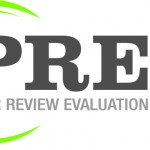Behind the headlines are exciting initiatives that have the potential to, not just improve peer review, but optimise it for 21st century scholarship, says Eric Hall, director of business development for PRE (peer review evaluation) at Striatus. He mentioned PEERE as an example of innovative Action:
“In 2014, COST (the intergovernmental framework for cooperation in science and technology in Europe) formed a group representing the first government-funded, multi-national effort to ‘improve the efficiency, transparency, and accountability of peer review.’ This effort, known as PEERE (www.peere.org), reflects the importance of peer review to researchers as well as to funding and governmental agencies. One of their key deliverables will be a peer review framework including principles, guidelines, indicators, and monitoring activities designed to enhance our understanding of what works and what doesn’t in scholarly communication. Sense about Science and PEERE are only two examples of organisations that are answering the call to improve the peer review process for the benefit of academia and society”.
Here is the link to the full version of the article: http://www.researchinformation.info/news/news_story.php?news_id=1862&task=delete



